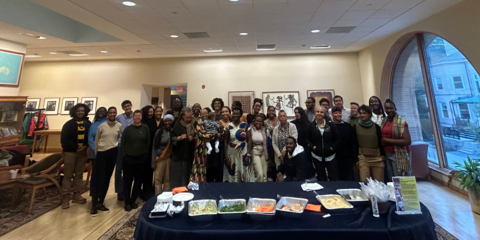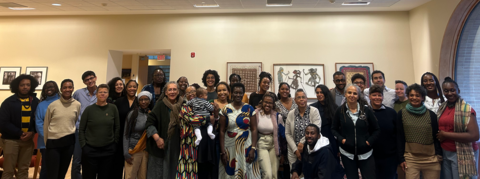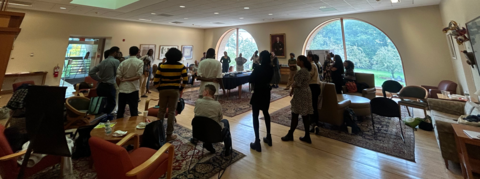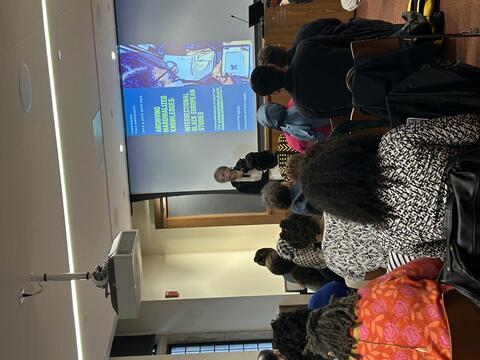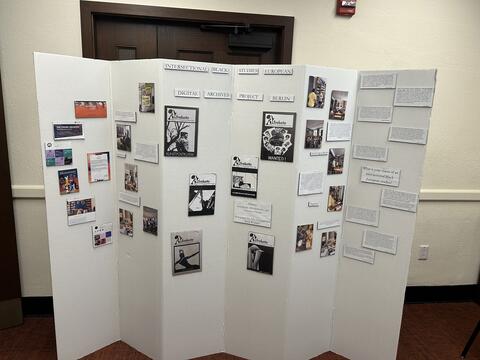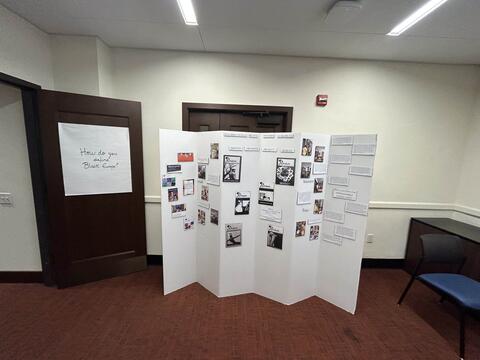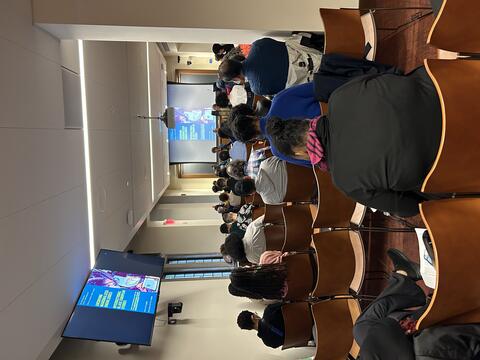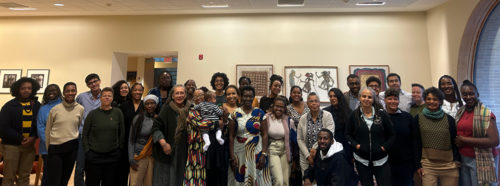
November 15, 2023
On September 29th and 30th, the Intersectional Black European Studies group, co-founded by Yale Professor Fatima El-Tayeb, Prof. Maisa Auma (Technical University Berlin), Prof. Denise Bergold-Caldwell (University of Innsbruck), Katja Kinder (Berlin Center for Educational Justice, RAA), and Peggy Piesche (German Federal Agency for Civic Education), hosted the symposium “Archiving Marginalized Knowledges: Digital Black European Archive.” The symposium is part of a collaboration between Yale, Technical University Berlin, and the Berlin Center for Educational Justice (RAA) to support Intersectional Black European Studies. It was generously sponsored by the Senate of Berlin, the European Studies Council at the Yale MacMillan Center, and the Yale Center for the Study of Race, Indigeneity, and Transnational Migration (RITM).
The symposium brought together a group of academics and students who will collaborate on institutionalizing the study of Blackness in Europe, e.g. through a Digital Black European Archive. “An understanding of Black history is part of European history, but it might take a while until we get there. So for the moment, the digital archive might be a way of saving certain materials that won’t survive much longer,” Prof. El-Tayeb summarized.
In the introductory conversation (watch recording), the co-conveners of the Intersectional Black European Studies group embedded the symposium within their over thirty-year-long communal struggle to institutionalize the study of Black individuals, communities, and histories on the European continent. Central to their work and mission is the recognition of many Black individuals and communities in Europe who have come before them and who have contributed greatly to their cause. The co-conveners also pointed to various persisting challenges, including European universities’ opposition to establishing Black Studies and a lack of state funding. “But Black, queer feminism is swimming against the flow. So we are undaunted,” Prof. Auma affirmed.
The first keynote conversation (watch recording) was held between Prof. Gloria Wekker (Professor emerita, Utrecht University) and Prof. Gail Lewis (Visiting Professor at Yale) and moderated by Prof. El-Tayeb. Both panelists emphasized the importance of an intersectional approach to studying Blackness in Europe, highlighting the integral contributions of Black, queer-feminist organizing. Prof. Wekker also spoke to the transatlantic dimensions of Black solidarity, recalling that the American feminist and scholar Audre Lorde helped connect Black, queer-feminist collectives across Amsterdam, Berlin, and Europe in the 80s. Archiving these memories and many others is urgent. “As I speak, people around me are passing and cannot tell their stories anymore,” Prof. Wekker shared.
In the second keynote conversation (watch recording), Karen Taylor (Board Member of the Afro-diasporic, anti-discrimination NGO Each One Teach One), Prof. Mame-Fatou Niang (Carnegie Mellon University), and Prof. Roderick Ferguson (Yale) discussed various strategies to institutionalize Black Studies. While Prof. Niang recounted that she had to leave France and come to the United States to finally study the work of Black intellectuals, Prof. Ferguson pointed to the persisting dangers in the American academy. Referring to the novel development of universities across the country welcoming LGBT and Black Studies, Prof. Ferguson asked: “What are all the complexities that are in an institutional ‘Yes’?”
The two days were rich in discussion and exchange. The Yale graduate fellows shared their experience archiving the first set of materials for the Digital Black Archive during their summer residency in Berlin (watch recording). Academics from other institutions shared past experiences and ongoing projects on archiving, translation, and organizing in the context of Black Europe. The symposium launched a network of dedicated scholars and students who are eager to create space for Black knowledge production and archiving in Europe. (watch concluding discussion recording)


